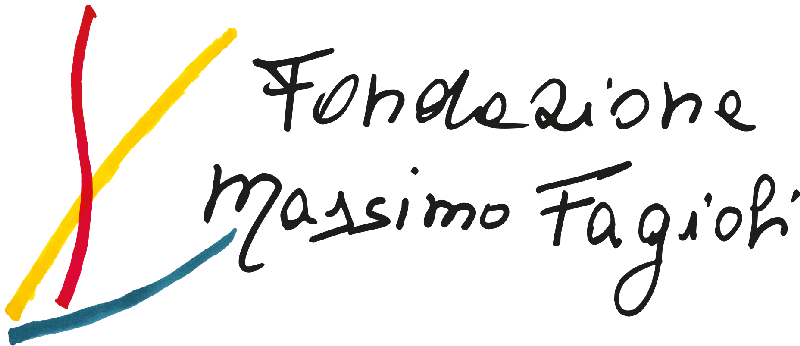The training of the mental health professionist, a multifaceted theme, currently, provides for growth on a notional basis only accompanied in some cases, fortuitous, by the association of a personal psychotherapy. Such a path may not be sufficient, but a more complex one is required, as this work wants to illustrate.
The origin of medical knowledge that began with the “hippocratric praxis”, which was medicine of the living body, an indistinct mix of matter, body proper, and not matter, the images of the mind, then developed over the course of the centuries. Unfortunately in the early periods medicine and philosophy often alternated in a confusing way. From Plato onwards, that dualism between psyche, which becomes soul, and soma, linked to rational knowledge, has been generated, causing the apocalyptic split of mind-body uniqueness. On one hand the result was that the study of the body, which has become the object of the anatomical tables, relying on the experiential field, discovered the origin of the “evils of man” in Nature. From that statement the pathways of the anamnesis, diagnosis, therapy and prognosis started, arriving to unimaginable results with modern technologies. On the other hand, the mind has increasingly become the prerogative of the spiritual and religious sphere with its tangles of emotions and irrationality. This split solidified by the Enlightenment, and monotheistic religions, implicated that mind’s identity was linked solely to reason.
The psychiatrist’s identity has thus remained anchored to the past, according to theories that are still latently influenced by philosophical and spiritual cultures, although claiming a modern identity. The most important current psychiatric strands of thought can be summarized: the organic genesis or existentialist vision of mental illness and the schools of psychoanalytic derivation. They propose psychotherapeutic practices with the aim of re-establishing identification with the Caregivers, bringing everything back to a status quo, without claiming original health and without a real cure.
The psychiatrist’s identity changed from the “doctor of the mind”, who should have an image of sanity and mental illness, to seek through the signs and symptoms, to relate to the environment, measuring its seriousness and have as his ultimate goal the search of a cure for healing, as defined by recent judgments of the judiciary.
It is precisely with the human Birth Theory, by the psychiatrist Massimo Fagioli, described in “Instinct of Death and Knowledge”, that this possibility of psychiatric identity is created. The idea explains the natural formation of the mind at birth: due to the reaction of human biology with light, through a disappearance fantasy, thus reintegrating the fusion of the mind into the human body and giving it back an irrational identity. With the new physiology of the mind an image of natural sanity reappears. This image can become ill, thus rediscovering the possibility of a diagnosis, without which there is no cure for healing.
Fagioli’s theory reveals that the mind has an inner image of warmth and affectivity immediately positive towards the others starting at the birth. This image develops through the human relationship with the breast. It also illustrates how the genesis of mental pathology occurs, due to the lack on the part of the maternal breast. Finally it defines how the disease originating in a pathological relationship can be resolved through another non-pathological inter-human relationship in the psychotherapy of the unconscious.
According to this physiopathology a new identity emerges for the psychiatrist as a psychotherapist, who preserves the medical identity of diagnosis, prognosis and treatment, based on his human and unconscious possibilities to see and relate to the other through sexual investment and to reject its partial and pathological dynamics. A therapy that aims at healing and not just recovery and adaptation to the environment.
In conclusion, the psychiatrist or psychologist, in order to be a “doctor of the mind”, must realize an interior dimension: the result of their personal human training and not subordinated only to a technique. At the same time they must preserve the practice of the physician of the body and transform it. The ancient physicist owned a only physical sensitivity and he identified signs and symptoms of the pathology by means of five senses. The psychotherapist must involve perception, sensitivity, creativity to diagnose like physician the the pathological dimension of the psyche, treating it by frustrating it. He borrows a scalpel from the surgeon which it becomes language in order to recreate the lost image of birth and health of the patient.
References
- Fagioli, M. (2017). Istinto di morte e conoscenza (14th ed.). Roma: L’Asino d’oro.
- Fagioli, M. (2011). La marionetta ed il burattino (10th ed.). Roma: L’Asino d’oro.
- Fagioli, M. (2012). Teoria della nascita e castrazione umana (10th ed.). Roma: L’Asino d’oro.
- Fagioli, M. (2013). Bambino donna e trasformazione dell’uomo (8th ed.). Roma: L’Asino d’oro.
- Fagioli, M. (2021). La psicoterapia come psichiatria. Roma: L’Asino d’oro.
- Fagioli, M. (2021). La psichiatria esiste?. Roma: L’Asino d’oro.
- Fagioli, M. (2010). Insulinoterapia e psicoterapia di gruppo: valore psicoterapeutico del senso della schizofrenicità. Il sogno della farfalla, 1, 11-21.
- Fagioli, M. (2019). Left 2016 2017. Roma: L’Asino d’oro.
- Colamedici, D., Masini, A., & Roccioletti, G. (2011). La medicina della mente: Storia e metodo della psicoterapia di gruppo. Roma: L’Asino d’oro.
- Fiori Nastro, P., & Fagioli, L. (2011). Una sentenza storica. Il sogno della farfalla, 4, 5- 13.
- Anzilotti, C., & Brandizzi M. (2012). Freud non è mai esistito. Riflessioni su una sentenza della Corte di Cassazione. Il sogno della farfalla, 1, 13- 45.
- De Simone, G. (2019). Teoria della nascita e ricerche sull’inconscio. Il sogno della farfalla, 1, 9- 46.
- Anzilotti, C. (2019). Riflessioni sulla Formazione dello psicoterapeuta. Il sogno della farfalla, 1, 47- 64.
- Zilboorg G., & Henry G.W. (1963). A History of Medical Psychology. New York: Norton (trad. it. Storia della psichiatria. Nuove Edizioni Romane, Fagioli, M, (ed), Roma, 2002).
